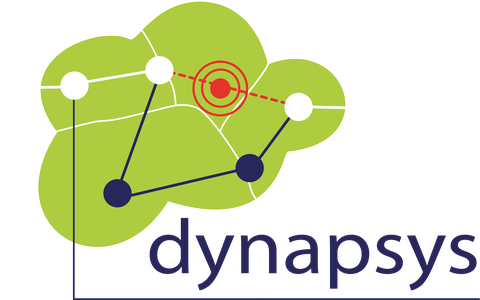DYNAPSYS
Dynamic Agenda Planning System (DYNAPSYS)
DYNAPSYS aims at supporting public transportation passengers to reach their destination comfortably. Using public transportation should be easy and the proposed route should flexibly adapt to quickly changing requirements such as severe weather or congestion.
The research project focuses on the development of a planning system for the passenger`s individual agenda irrespective of end device and system software. The mobile application DynApp with its background system DynCloud will provide any relevant information to the passenger: park and ride facilities, public transportation prices etc.
Surveys will collect data about the customer wishes, which finally contribute to an efficient public transport planning and an appropriate occupancy rate. Thus, the system will ease the transition from individual traffic to public transportation since it offers a simple and smart solution for everyone!
The Junior Professorship Software Engineering of Ubiquitous Systems (SEUS) is the scientific coordinator of the work packages 3 and 4. These work packages mainly deal with semantic modeling of public transport information and the development of the mobile application DynApp, which serves as an interface between DynCloud and the passenger. DynApp provides a user-friendly, standardized surface for ease of use of the cloud services.
The project is funded by the German Federal Ministry for Economic Affairs and Energy (BMWi) and ends in June 2016.
The following partners are involved in the project:
Industrial companies
-
SALT Solutions GmbH
- Avantgarde Labs
- TTI GmbH - TGU Interaktion.biz
Transportation companies
-
Regionalbus Braunschweig GmbH (coordinator)
Universities
-
TU Dresden, Junior Professorship Software Engineering of Ubiquitous Systems (SEUS) at the Faculty of Computer Science (scientific coordinator)
- TU Dresden, Professorship of Systems Engineering at the Faculty of Computer Science
-
TU Ilmenau, Media Production Group at the Institute of Media Technology
Contacts:
Jun.-Prof. Dr. Thomas Schlegel
Dipl.-Inf. Rico Pöhland
